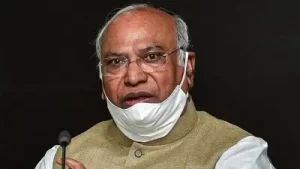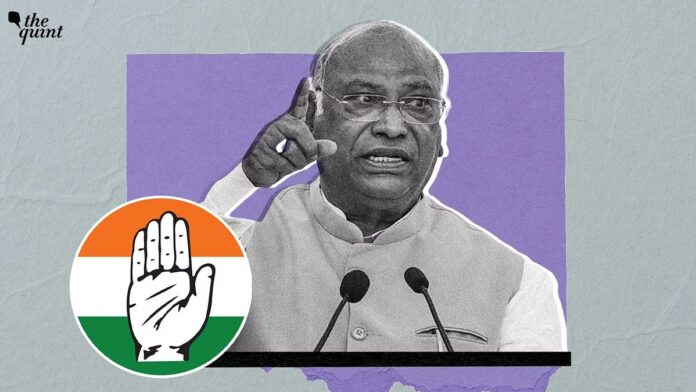Even while the argument over the proportion of seats earmarked for young and socially backward groups continues, the Congress is planning to raise the number of members in the Congress Working Committee but is not expected to do so through elections.
 The Congress Working Committee (CWC), the highest decision-making body in the party, is now being formed as the party prepares for its 85th plenary session, which will take place from February 24 to 26 in Nava Raipur.
The Congress Working Committee (CWC), the highest decision-making body in the party, is now being formed as the party prepares for its 85th plenary session, which will take place from February 24 to 26 in Nava Raipur.
The CWC is composed, in accordance with the party constitution, of the party president, the head of the Congress in Parliament, and 23 additional members, 12 of whom are chosen by the AICC and the remainder by the president. All CWC members, however, have been chosen by the Congress president over the last 25 years.
Elections for the CWC were last held in 1997 during the Calcutta plenary session presided over by president Sitaram Keri. A year later, the CWC adopted a resolution condemning Kerri, which ultimately resulted in his dismissal and the installation of Sonia Gandhi as the party’s leader. At the Tirupati plenary session, the 1992 CWC election also came to a farce.
Party leader and former prime minister P.V. Narasimha Rao forced the whole CWC to resign when some of his competitors were elected to the body, claiming the absence of women and members from the Scheduled Castes and Tribes. Under Sonia and Rahul Gandhi’s leadership, there was no CWC election.
There have been rumblings that a group of party officials are calling for elections to be held for the 12 slots in the CWC now that Mallikarjun Kharja has been chosen as the new president of the Congress. In actuality, elections to the CWC were the main concern of the now-disbanded “G23” (Group of 23) rebel group. Several prominent figures, including Vivek Tanka, Milind Debora, Raj Babar, Prithvi raj Chavan, and.
encouragement of a CWC election. The majority of them make the point that since the party started a democratic process by electing a president, it must continue in same spirit by having an elected CWC rather than one that was nominated.
The steering group, according to a senior member of Congress, is overwhelmingly opposed to holding the election. Kharja established the steering committee after being elected president. A steering committee is formed in the interim to carry out the CWC’s duties because the CWC is disbanded once a new president is chosen and the next CWC can only be formed at an AICC session. This steering committee is primarily composed of the former CWC members.
The majority of the steering committee members believe that, in the event of a struggle, the AICC plenary might turn into a battleground for factional disputes. All the benefits gained from the successful Bharat Jodo Yatra could be undone if the election gets nasty and contentious and sows the seeds of more split within the party.
With the Lok Sabha elections a year away and numerous important states holding elections this year, this may not be a good look for the party. In the large states of Karnataka, Rajasthan, Madhya Pradesh, and Chhattisgarh, where it will face off against the BJP, the Congress will run in significant elections. In two of the states that will hold elections, Rajasthan and Chhattisgarh, the Congress is in charge. Faction conflicts plague the state units in both states.































